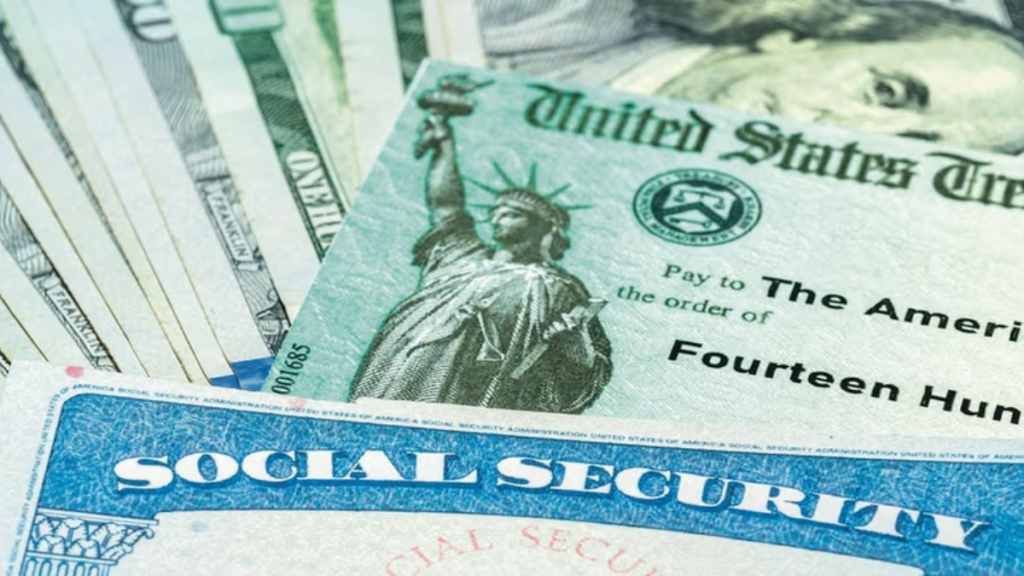Many retirees rely on their Social Security benefits as a primary source of income. So it can be alarming to hear that some beneficiaries may receive a “Goodbye” Social Security check—a warning that benefits could be halted due to specific actions or inactions.
There are several reasons your Social Security payments may stop, ranging from incomplete paperwork to failing to report life changes. The good news? You can take clear steps to avoid any interruption and keep your monthly pension secure.
Whether you receive retirement, disability (SSDI), or Supplemental Security Income (SSI), it’s critical to stay in compliance with Social Security Administration (SSA) rules.
Common Reasons Why Social Security Benefits Stop
Losing access to your Social Security check usually doesn’t happen without warning. Below are common triggers that could cause the SSA to stop your payments:
- Failure to complete Continuing Disability Reviews (CDRs)
- Returning to work while on SSDI without reporting income
- Moving abroad without notifying the SSA
- Failing to update your mailing address or direct deposit info
- Earning too much money while collecting early retirement benefits
- Non-citizen status changes or loss of lawful presence in the U.S.
- Outstanding felony warrants or incarceration
Any of these events can prompt a suspension or complete cancellation of your Social Security benefits unless addressed immediately.
How to Ensure Your Social Security Pension Keeps Coming
1. Keep Your Information Updated
The SSA depends on your information being accurate and up-to-date. If you move, change your phone number, or switch bank accounts, report it right away via your my Social Security account or by calling 1-800-772-1213.
Failure to update your mailing address or banking details may result in missed or returned checks. This is especially important if you’re receiving paper checks rather than direct deposit.
2. Sign Up for Direct Deposit
Direct deposit is the safest and fastest way to receive your Social Security check. If you’re still receiving paper checks, switch to electronic payments through GoDirect.gov or by calling the SSA.
Paper checks can be lost, stolen, or delayed in the mail—especially during weather events or postal service disruptions.
3. Report Life Changes Promptly
Certain life events must be reported to the SSA, such as:
- Marriage or divorce
- Changes in work status or income
- Changes in disability condition
- Immigration or citizenship status changes
- Incarceration
Failing to report these changes can result in overpayments or suspensions. Overpayments may require you to repay thousands of dollars, even if the mistake was unintentional.
4. Understand Work Limits for Early Retirees
If you start receiving Social Security before your full retirement age and continue working, you are subject to annual earnings limits. For 2025, the limit is $22,320. If you exceed this amount, your benefits may be reduced temporarily.
After you reach full retirement age, the earnings cap no longer applies. Knowing the rules ahead of time will help you avoid unpleasant surprises.

What to Do If Your Benefits Have Already Stopped
If you receive notice that your Social Security benefits are being suspended or have stopped, take the following steps immediately:
Step 1: Review the Notice Carefully
The SSA is required to send you a written explanation before halting benefits. This notice will include the reason, any back payments owed, and how to appeal.
Step 2: Contact the SSA Quickly
Call the Social Security Administration as soon as possible at 1-800-772-1213. You may be able to resolve minor issues, such as updating bank information, in one call.
Step 3: File an Appeal If Necessary
If your benefits were stopped unfairly or due to an SSA error, you have the right to appeal. You can request a reconsideration online or by mail within 60 days of receiving the notice. During this process, you may also request continuation of benefits while the appeal is pending.
International Travel and Social Security Checks
If you plan to move abroad or spend extended time outside the U.S., know that your eligibility may be affected—especially for SSI recipients. Most U.S. citizens can receive retirement benefits abroad, but there are exceptions.
Before you travel or relocate, check with the SSA about the country’s eligibility status. You can find detailed information in the SSA Payments Abroad Guide.
Conclusion: Stay Informed to Protect Your Benefits
Receiving a “Goodbye” Social Security check doesn’t necessarily mean your benefits are gone for good. In most cases, missed or suspended payments can be restored by taking timely action, staying informed, and communicating clearly with the SSA.
To protect your retirement or disability income:
- Update your information regularly
- Monitor your SSA account
- Report life changes
- Understand your rights and obligations
For more guidance and tools, visit the official Social Security Administration website.
Disclaimer – Our team has carefully fact-checked this article to make sure it’s accurate and free from any misinformation. We’re dedicated to keeping our content honest and reliable for our readers.
